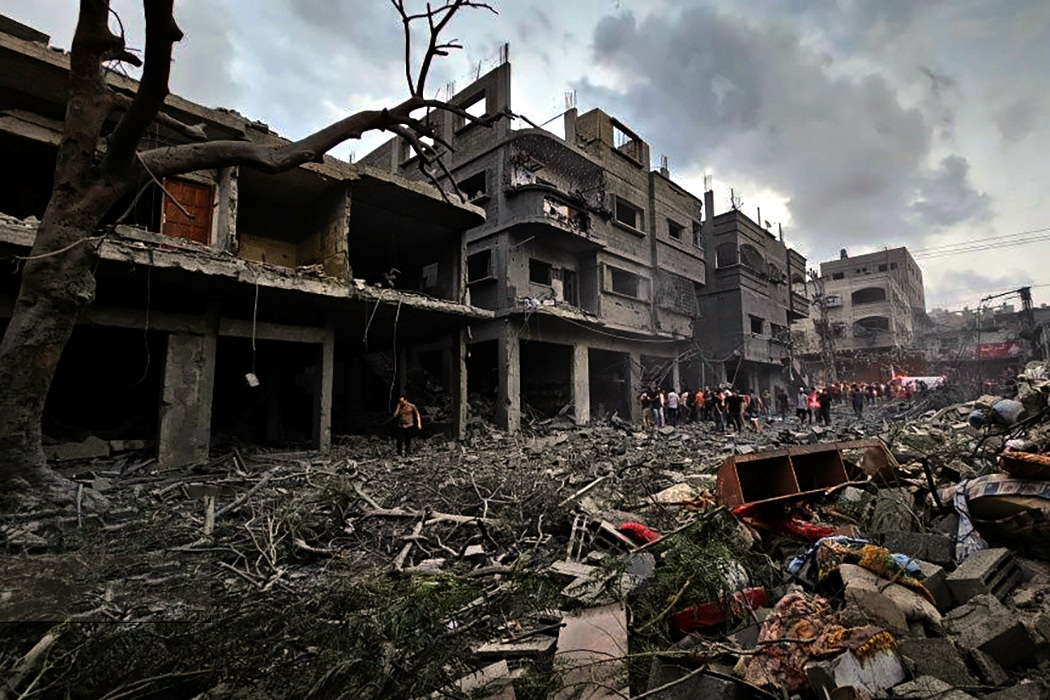Zionism unfolding: The Israeli far-right calls for colonization, expulsion, and war crimes.

Destruction and rubble in the Gaza Strip during the war in 2023
Jacob Sagers – Israeli far-right lawmakers are renewing calls for resettling the Gaza Strip with Israelis once the war finishes. The move is controversial and unpopular with most Israelis, yet, under Netanyahu's return to power, the Israeli political far-right is flourishing; the move is not inconceivable. After Hamas's attacks against Israeli civilians last October and Israel’s subsequent invasion, the question of what happens to Gaza is uncertain. Observers note: “The movement to settle Gaza is driven by nationalist fervor, religious zeal, and security concerns…” and many extreme supporters of the plan, including Israeli defense minister Itamar Ben-Gvir, desire deporting Palestinians, similar to the Nakba in 1948.
Appeals to legalize settlements come from Zionism, a nationalist movement for reestablishing and developing a Jewish nation in what is now Israel. Nationalism, or taking the shared sense of attachment to a particular nation and using it to justify political action, comes in different forms. Zionism takes a bottom-up form, which creates a sense of national identity at the individual and group level and then desires a country for that group. Zionism has a complex history which is also deeply intertwined with religion and affects modern Israeli identity. Much of Israeli policy and politics concerns Palestine. A two-state solution, annexation, or deportation are historically some proposals, but these debates all stem from nationalistic ideas. As an idea grows and takes root, it becomes more difficult to combat and contain.
Nationalism’s implications are not just limited to debates but also action. Illegal Israeli settlements in the West Bank, blocking Gaza for over a decade, and the current Gazan occupation derive from nationalistic fervor and calls for a Jewish state. If Zionism was not dominant in Israeli politics, and a more secular state was the goal, then Israel’s actions would probably be much different and inclusive of more religious and ethnic groups. However, the war has strengthened Zionism’s pertinence and leaves the future unclear. It also raises the question, if a state's identity comes from religion, can other religious groups be accepted and cohabitate? Among some more conservative elements of Israeli society, the answer increasingly appears to be no.
Picture Credit: Photo distributed under Creative Commons Attribution-Share Alike 4.0 International License. Source.

